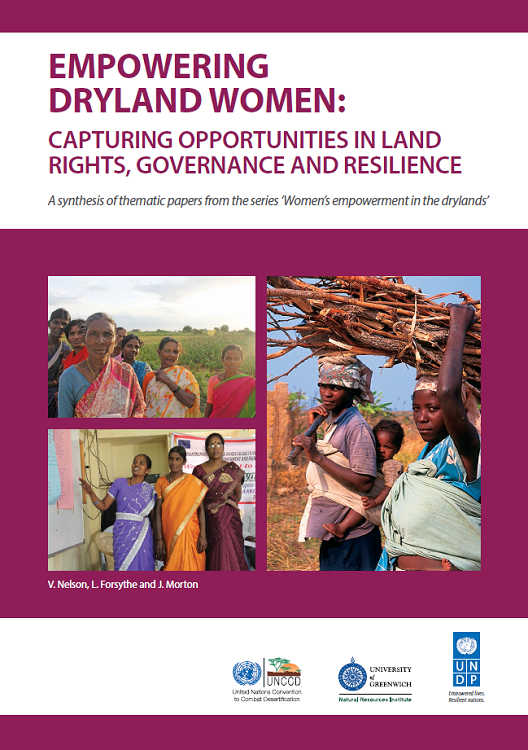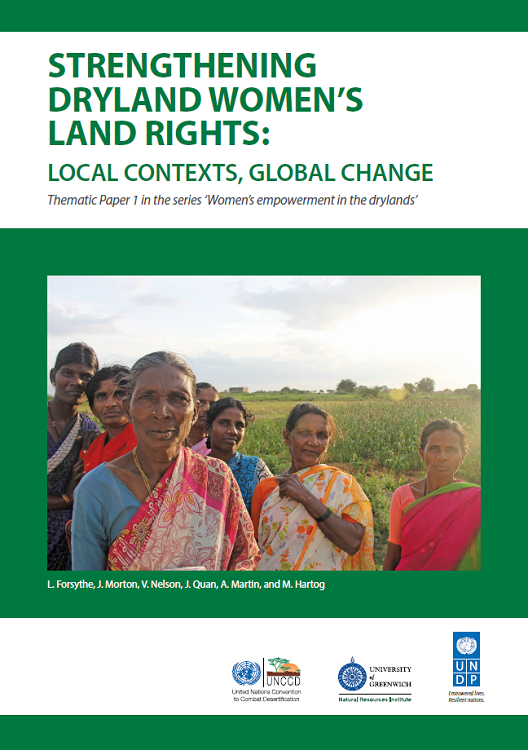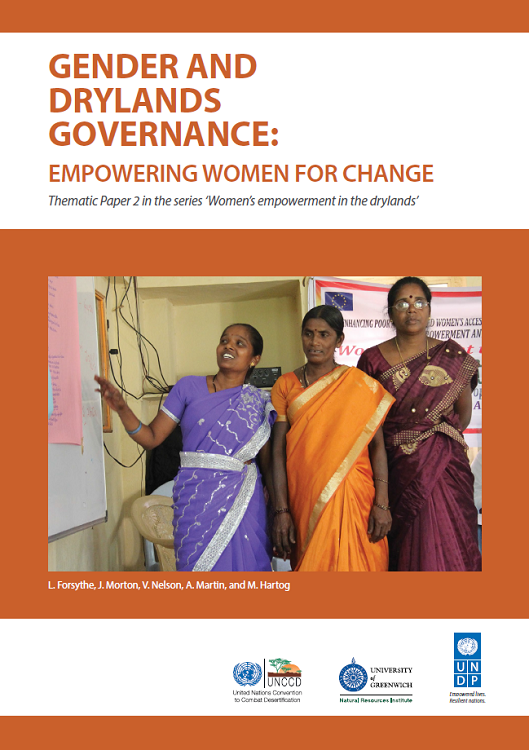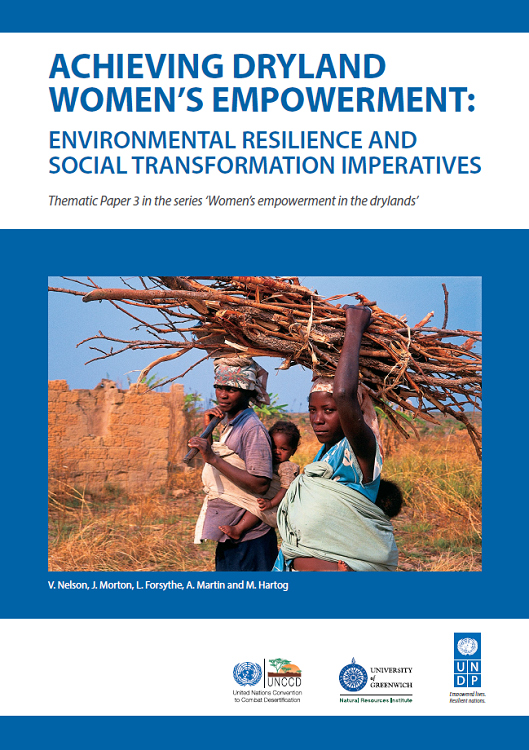
Findings from research recently conducted by NRI reveal the importance of supporting women's empowerment in dryland regions. Drylands are highly diverse, encompassing vast geographical areas. In general they are characterised by environmental conditions of low and variable rainfall and water availability, and by a mixture of agriculture- and livestock-based systems. These conditions mean that drylands people often have unique relationships to land and practice adaptive strategies that respond to the seasonal, climatic and environmental change of drylands.
 Dryland populations are frequently marginalised and face major climatic, environmental, demographic and socio-economic challenges. Dryland women play an important role in drylands development and in the management of natural resources in this challenging context. Moreover dryland women face specific discriminations due to widespread gender inequalities.
Dryland populations are frequently marginalised and face major climatic, environmental, demographic and socio-economic challenges. Dryland women play an important role in drylands development and in the management of natural resources in this challenging context. Moreover dryland women face specific discriminations due to widespread gender inequalities.
The UNDP Global Policy Centre on Resilient Ecosystems and Desertification and the UN Convention to Combat Desertification (UNCCD) commissioned NRI to conduct an extensive review of research on three key topics relating to dryland women's empowerment, namely land rights, governance and resilience. 
The findings of the research were recently presented at the UNCCD Conference of Parties (COP) 12 in Ankara, including key challenges and opportunities, important lessons emanating from case studies and development practice, and key strategic measures in relation to policy, institutions and capacity building.
Three thematic papers were produced, as well as accompanying policy briefs and an overall synthesis paper. Links to the electronic version of these papers are found below.
Key conclusions about promoting women's empowerment in the drylands include:
- Gender inequality in land rights is pervasive, but significant opportunities exist to address these challenges, working through both statutory and customary frameworks for land rights.
 - Ensuring the full recognition of women's rights, within existing initiatives to promote democracy and decentralisation, can achieve widespread acceptance of women as equal members of dryland communities and citizens of the state.
- Ensuring the full recognition of women's rights, within existing initiatives to promote democracy and decentralisation, can achieve widespread acceptance of women as equal members of dryland communities and citizens of the state.
- Resilience is the ability of the environment and people to recover from shocks and stresses. Resilience in a dryland context will mean women actively contributing to and benefiting from sustainable drylands development – in climate adaptation, livestock, education and health services, and social protection programmes. Such approaches should recognise the value of dryland ecosystems and the associated adaptive livelihood systems of drylands people. Responses need to build upon the structural variability of drylands, local knowledge and adaptive pastoral systems, while also being willing to tackle constrictive social norms where necessary. Measures are needed to ensure a redistribution of resources in favour of women and marginalised groups.
For more details on the research findings and recommendations, access the full reports here.

